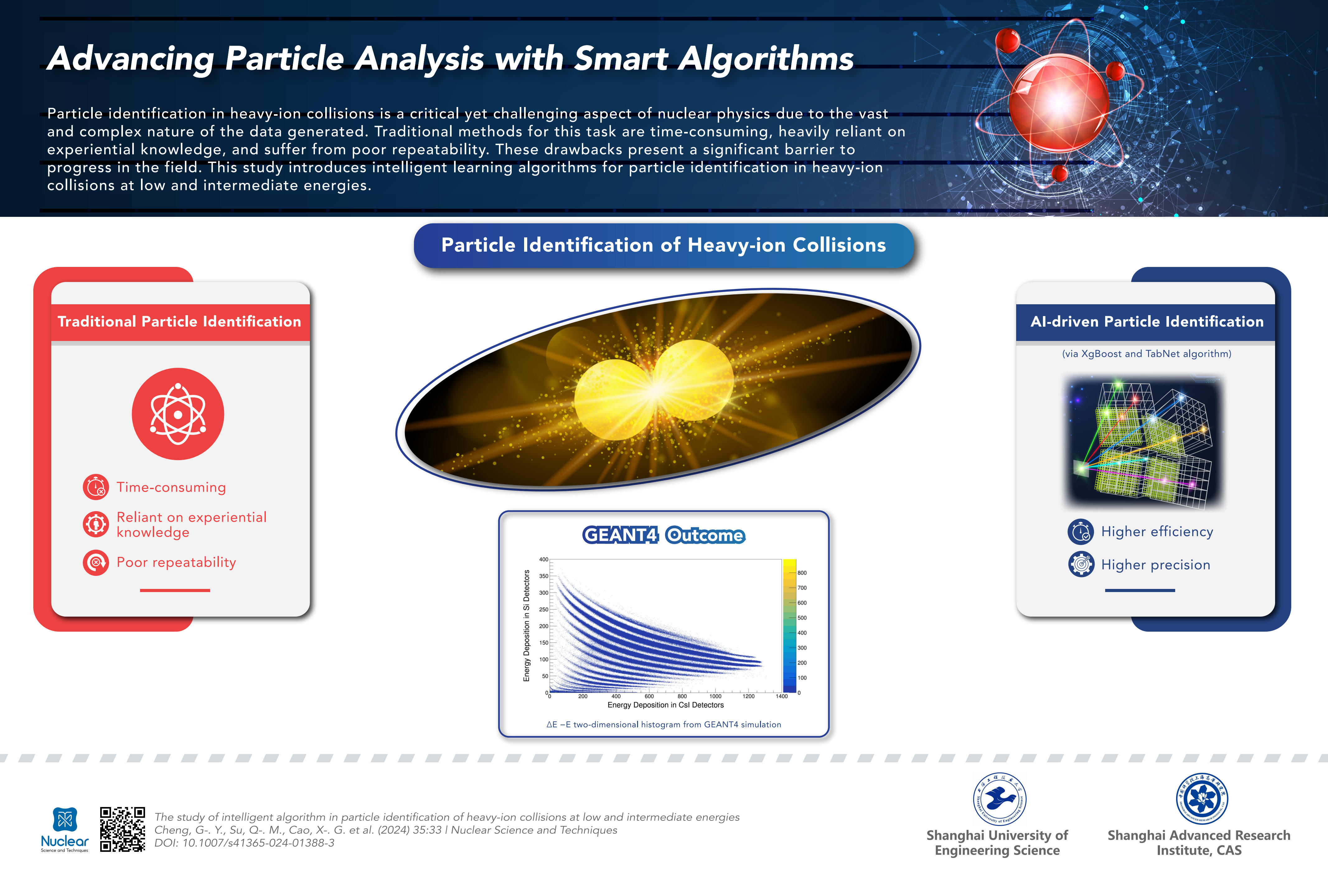Article title: The study of intelligent algorithm in particle identification of heavy-ion collisions at low and intermediate energies
DOI: (TBC)
One sentence summary:
This research studies the use of artificial intelligence algorithms like XgBoost and TabNet to significantly enhance particle identification in heavy-ion collisions, promising to advance nuclear physics
Keywords:
Heavy-ion collisions at low and intermediate energies; Machine learning; Ensemble learning algorithm; Particle identification; Data imbalanc
The Novelty (What)
This study introduces intelligent learning algorithms for particle identification in heavy-ion collisions at low and intermediate energies. Utilizing computational models, researchers employed artificial intelligence algorithms, such as XgBoost and TabNet, to overcome the limitations of traditional particle identification methods. These algorithms demonstrated good performance and generalization capabilities whereby they improve the precision and efficiency of identifying particle types from complex datasets significantly. The findings not only underscore the potential of intelligent algorithms in transforming nuclear physics research but also hint at future applications in similar complex data analysis challenges across various scientific disciplines.
The Background (Why)
Particle identification in heavy-ion collisions is a critical yet challenging aspect of nuclear physics due to the vast and complex nature of the data generated. Traditional methods for this task are time-consuming, heavily reliant on experiential knowledge, and suffer from poor repeatability. These drawbacks present a significant barrier to progress in the field. The thesis of this research posits that the application of machine learning and deep learning algorithms could address these challenges by automating the particle identification process, meanwhile enhancing accuracy and efficiency. By proposing a novel solution that leverages artificial intelligence, this study strives to improve the way scientists approach particle identification. Its effort offers a more reliable and streamlined method that could significantly accelerate advancements in nuclear physics.
The SDG impact (Big Why)
The importance of advancing education and techniques in nuclear physics cannot be overstated, as these elements are pivotal in driving innovation and research that underpin sustainable development globally. The application of intelligent learning algorithms in nuclear physics, specifically for particle identification in heavy-ion collisions, contributes directly to SDG 9 (Industry, Innovation, and Infrastructure) and SDG 17 (Partnerships for the Goals). By improving the precision and efficiency of particle identification, this research paves a path for future studies of similar area in nuclear physics.
Graphical Abstract


